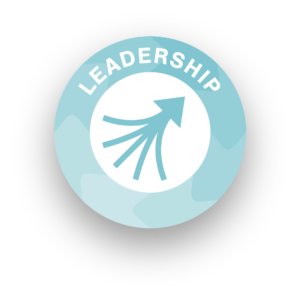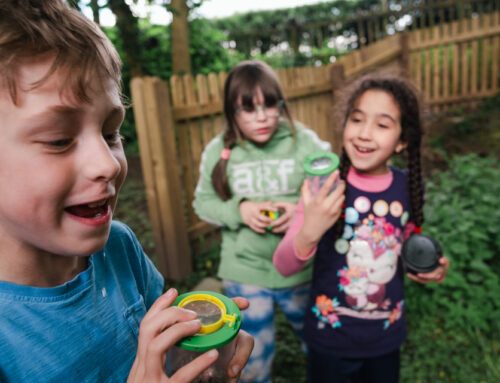Leadership is one of those essential skills that doesn’t always get a huge amount of attention, and doesn’t always get a good press. Has it fallen out of favour and out of our general consciousness just a little, perhaps? Has it ever really had the prominence it deserves? Possibly not. Certainly, it is not up there with literacy or numeracy; it does not feature overtly in the curriculum and we don’t have “leadership lessons” per se. Yet, there is a growing sense that leadership, whether rightfully acknowledged right now or not, should become part of the set of essential skills children should develop, not just so that they may become more employable in the future, but to help them to thrive in the here and now. So, what is leadership? What does it mean to have “leadership skills”, and why are they important, particularly for high potential learners?
The Definition
Perhaps a reason for leadership skills lagging behind in the essential-skills-for-children league table is the vague, yet uncomfortable sense of elitism that it elicits, and an accompanying lack of clarity over its definition. Perhaps there is an element of fear that to develop leadership skills is to favour the elite and the strong; the confident and the bossy; to go against every sense of fairness and inclusivity that society values? Is it discrimination, almost? These worries may well be doing the concept of leadership a great disservice, and perhaps do a lot more to highlight the need for more clarity around its definition, than adding any weight to the idea of any awkward exclusivity.
Skills Builder are leading the way in this effort to give leadership a much clearer definition and providing the concept with a long overdue “rebrand”. They describe the concept of leadership as:
“supporting, encouraging, and motivating others to achieve a shared goal.”i
Only from this defined starting point, where there is an understood and accepted common language, can skills be developed in this area. Without it, there is no real way of tracking progress in leadership skills as, after all, if there is no proper understanding of what a person is working towards, then there will be no way of knowing either how to get there or when the destination may have been reached. A clearer definition also, of course, dispels the unhelpful assumptions and misconceptions that plague the concept of leadership.ii
Slowly but surely, with this clearer idea of leadership as supporting others, encouraging others and motivating others, the concept is transformed from some hazily concerning authoritarian and elitist throwback to something a lot more worthwhile and essential. It becomes less an old boys’ network anachronism and so much more about key communication and critical thinking skills that are important for children’s development and wellbeing.
How Does it Develop?
In line with their focus on the importance of a clearly defined common language concerning leadership skills, Skills Builder have set out a clear and simple map of the progression and development of these skills, set out in 15 steps (or 16 if you count step 0!).The following steps are quoted from the Skills Builder Leadership Handbook.
The early few steps are set out as follows:
Step 0
“I can sometimes describe how I feel.
Learners can sometimes articulate their feelings, in simple terms to a trusted adult.”
Step 1
“I can describe how I am feeling to my team.
Learners are able to articulate and explain their feelings in a group situation, working with others.”
Then, at around steps 4 and 5, skills in the area of self-regulation and responsibility become part of the mix, too:
Step 4
“I take responsibility for my team mates completing their jobs on time.
Learners can take a leadership role that requires them to divide roles between their peers, and encourages them to complete the tasks effectively.”
Step 5
“I can help my team come to a decision that most people are happy with and finish the task.
Learners can contribute to team discussion to reach a consensus on what actions should be undertaken. Learners are able to then see a simple task through to completion.”
When a child has progressed around halfway through the steps, they will then be looking at demonstrating the following:
Step 7
“I can explain my own strengths and weaknesses and how to make my best contribution.
Learners have developed the self-awareness to identify their own strengths and weaknesses, and how they can make their best contribution to the group.”
Step 8
“I can explain my team mates’ strengths and interests.
Learners are able to identify and articulate the strengths and interests of others in their teams.”
Once a child has progressed all the way through the steps, they will have been able to demonstrate much more complex leadership skills. The final two steps are set out below:
Step 14
“I can explain positive and negative aspects of different leadership styles and am aware of the limitations of the leadership style I tend towards.
Learners understand that leadership styles have positive and negative aspects to them and can outline the negative aspects of their leadership style.”
Step 15
“I can adapt my leadership style depending on the situation I am in and who I am working with.
Learners can assess a situation, identify which leadership style is most appropriate and adopt that style.”
For a full picture regarding the leadership skills steps, please visit Skills Builder and view their Leadership Handbook. By using this tool and by tracking a child’s progress through these clearly defined steps, parents and teachers can have a clear understanding of which stage of development a child is currently at in these skills, and what progress would look like.
With the help of the full set of steps in the Skills Builder handbook, it can be seen that leadership skills can develop (and be helped to develop) all the way from the very first few green shoots, where an understanding of a child’s own and others’ feelings is the focus, to the development of self-regulation skills in the area of decision making and task completion, all the way to the point at which a child can identify the strengths of their team, motivate them and understand the benefits and drawbacks of different leadership styles.
Why is it Important?
There seems to be a circularity when it comes to leadership, where only those with natural leadership skills already developed, tend to be given the opportunities to express and further develop them. Yet, there is no reason at all why leadership skills should not be developed in all children. In fact, there is every reason to suggest that it is incredibly important that they should be; that this conceptual barrier must be broken down; for the skills that could be developed, have the potential to be overwhelmingly positive both for academic attainment and for the overall wellbeing of all children.
Development of the self-regulation skills, communication skills and motivational skills that are required for leadership, translate well into supporting academic success. These skills then convert very well into the job market, both in the sense that employers may look favourably at a candidate who can evidence leadership skills, but also in the sense that leadership skills can help aid confidence which can, in turn, spur a young person on to apply for more aspirational jobs where leadership skills are positively required.
However, it is in the area of wellbeing, of confidence and self-esteem, that leadership skills may prove to be of the most use. The benefits of having improved communication skills very often include a greater sense of agency; a greater sense of autonomy. With these skills a child is better able to communicate how they feel and what they need, and thus can more easily achieve positive changes, both by themselves and by asking for help, when needed.
Whilst the skills required for leadership are useful and appropriate for all children, there are some aspects that particularly meet the needs of children with high learning potential. In working on leadership skills, they will be given the opportunity to develop their social and communication skills. The development of social and communication skills, whilst important for all children, can be of particular benefit to those young people with high learning potential, who have felt isolated by their perceived difference. Combined with the development of self-advocacy skills, these can assist children to build a sense of empowerment and general wellbeing.
By working on their leadership skills, high potential learners also have the opportunity to get their teeth into the kind of higher order thinking skills that nourish their need for complexity and challenge. There are ample opportunities for all children with high learning potential (not just the outgoing and the most confident) to evaluate, to analyse and to use their creativity in the area of leadership. At whatever level of confidence and assuredness, there is the opportunity to progress from that starting point and develop their skills further.
Far from being the pretentious nightmare of an area that it may have been feared at first, it could be argued, that leadership skills are particularly open and equitable, because they can be developed from whatever starting point a child may be at. There is no requirement for the quietest of children, high learning potential or not, to suddenly turn into the brashest, most uninhibited of leaders; however, a focus on leadership skills may help with a significant and positive development in confidence and assertiveness for even the most introverted of children.
So, should leadership skills zoom up the leader board a little? Should there be a brand new understanding of leadership? An understanding that the development of leadership skills is not just for the natural born leaders? That, in fact, leadership skills are suitable for for every child at every level of the leadership skills ladder, and, that, they may even give children with high learning potential a little bit of extra, and very welcome, complexity…? Certainly, for high potential learners, these may not only be skills that set them up well for the future, but also those that can really contribute to their wellbeing in the present, too.
[ i – ii] Skills Builder Leadership Handbook

About the author: Caroline Hooton-Picard is an adviser for Potential Plus UK. She has a background in mental health, having worked for Suffolk Mind and also in private practice, and has a first class degree in Philosophy from the University of Essex. She also has a High Learning Potential daughter who keeps her very much on her toes!






